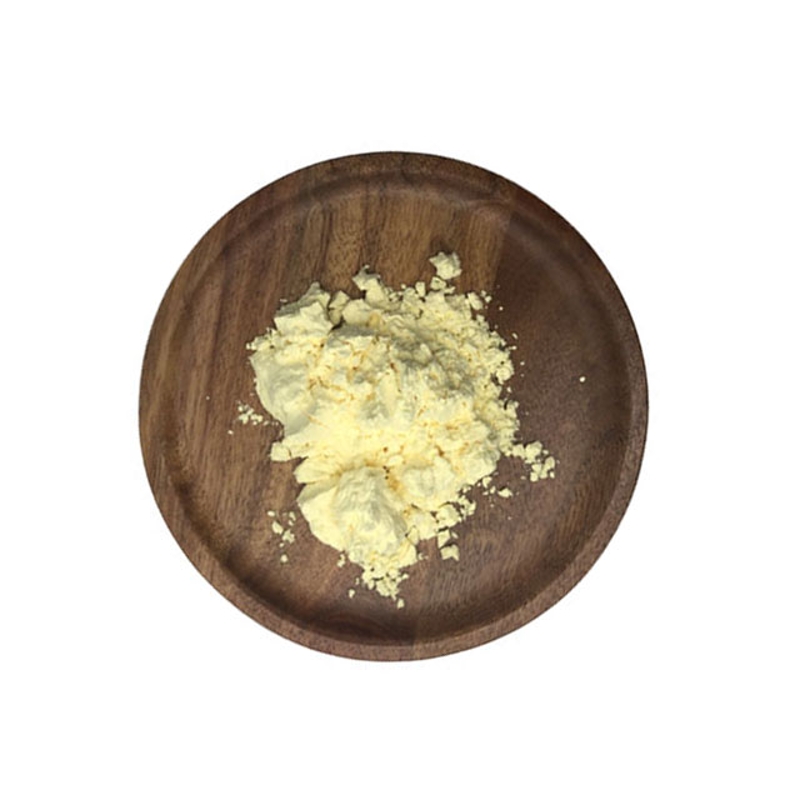-
Categories
-
Pharmaceutical Intermediates
-
Active Pharmaceutical Ingredients
-
Food Additives
- Industrial Coatings
- Agrochemicals
- Dyes and Pigments
- Surfactant
- Flavors and Fragrances
- Chemical Reagents
- Catalyst and Auxiliary
- Natural Products
- Inorganic Chemistry
-
Organic Chemistry
-
Biochemical Engineering
- Analytical Chemistry
- Cosmetic Ingredient
-
Pharmaceutical Intermediates
Promotion
ECHEMI Mall
Wholesale
Weekly Price
Exhibition
News
-
Trade Service
Recently, a study to explore the recurrence rate and predictive factors of patients with lupus nephritis (LN) who achieved clinical remission after stopping immunosuppressive (IS) treatment, and came to the following important conclusions: ➤About 23% of LN patients are stopping immunosuppressive treatment Recurrence later; ➤LN patients who stop IS treatment, continue to use hydroxychloroquine (HCQ) and/or maintain remission for more than 3 years can reduce the risk of recurrence; ➤LN patients who relapse after stopping immunosuppressive treatment, most of them can be achieved again after retreatment Clinical remission.
The authors suggest that in order to reduce the risk of recurrence, patients with LN should maintain IS treatment for at least 3 years after reaching remission.
Hydroxychloroquine treatment can reduce the risk of recurrence in LN patients, and it is recommended that all LN patients receive long-term hydroxychloroquine treatment.
After patients with lupus nephritis (LN) reach clinical remission, whether immunosuppressive (IS) therapy can be stopped and the timing of drug withdrawal are still controversial.
Studies have shown that the annual recurrence rate of LN patients who achieve remission and stop IS treatment is 4% to 16%.
Due to the lack of consistent data, EULAR's 2019 LN management recommendations did not give relevant recommendations on the timing of IS treatment withdrawal.
In clinical practice, in order to prevent recurrence, LN patients who achieve remission usually continue to receive IS treatment.
However, recent studies have shown that long-term IS treatment may lead to the progression of systemic lupus erythematosus (SLE) damage.
Therefore, it is necessary to clarify the timing of discontinuation of the drug for LN patients who have received IS treatment and achieved remission, and the risk of recurrence after discontinuation of the drug.
To this end, Italian scholar Margherita et al.
conducted a cohort study to explore the recurrence rate and predictive factors of LN patients who achieved remission after IS treatment was discontinued.
The results were recently published in the journal Rheumatology (Oxford).
(Impact factor: 5.
605).
Study Introduction The study included 238 patients with LN who were diagnosed by kidney biopsy from 1980 to 2020 and received IS treatment.
64.
3% of the patients had received more than one type of IS treatment.
Definition of "remission": After treatment with immunosuppressive and/or antimalarial drugs and/or prednisone ≤5mg/d, serum creatinine is normal, proteinuria <0.
5g/24h, no active urine deposits, no extrarenal SLE activity performance (SLEDAI-2000=0).
Discontinuation of IS treatment is defined as complete discontinuation of immunosuppressive agents.
According to the SELENA-SLEDAI Recurrence Index (SFI), an increase in proteinuria of more than 0.
5g/24h or an increase in creatinine level is considered a potential LN attack.
The odds ratio (OR) and 95% confidence interval (CI) were used to assess the risk factors for recurrence.
The results of the study were that about 23% of LN patients relapsed 46 ± 30 months (mean ± standard deviation) after IS treatment was discontinued, and 83 patients (34.
8%) stopped IS treatment due to remission.
Ten patients stopped IS treatment due to poor compliance/intolerance.
In 83 patients who discontinued IS treatment, 19 patients (22.
9%) relapsed during the follow-up period of 116.
5±78.
1 months (mean±standard deviation).
Among them, 9 cases (47.
4%) relapsed as severe disease (8 cases of glomerulonephritis, 1 case of central nervous system infection).
Nineteen patients with relapsed LN received treatment again, and 14 patients (73.
7%) achieved remission again.
It is worth noting that out of 10 patients who discontinued IS treatment due to poor compliance/intolerance, 8 patients relapsed.
The use of HCQ and maintenance of remission> 3 years can reduce the risk of recurrence in patients with LN.
Among the patients who discontinued IS treatment, 64 patients received hydroxychloroquine (HCQ) treatment, 9 received low-dose hormone (≤5mg/d) treatment, and 6 patients Stopped all treatments.
The recurrence rate of patients who received HCQ treatment was significantly lower than that of those who did not receive HCQ treatment (p=0.
002); there was no significant difference in recurrence rate between patients who received hormone therapy only and patients who stopped all treatments (p=0.
7).
Multivariate analysis shows that factors that can reduce the risk of recurrence include: ➤Receiving IS treatment for ≥3 years after remission (OR=0.
284; 95%CI: 0.
093~0.
867; p=0.
023) ➤Continuing to receive HCQ treatment after stopping IS treatment (OR =0.
194; 95%CI: 0.
038~0.
978; p=0.
047) ➤Older age when stopping IS (OR=0.
93; 95%CI: 0.
868~0.
997; p=0.
040) ➤Maintain remission before stopping IS treatment>3 years ( OR=0.
231; 95%CI: 0.
058~0.
920; p=0.
038) Among LN patients with remission> 3 years, compared with patients who did not use HCQ, those who received HCQ maintenance treatment had a significantly lower risk of recurrence (OR=0.
057; 95%CI: 0.
007~0.
487; p=0.
014).
Research conclusions Studies have shown that patients with LN can stop IS treatment, especially those who have achieved remission for more than 3 years and received HCQ treatment.
Based on the results of the study, the authors recommend that, in order to reduce the risk of recurrence, patients with LN should maintain IS treatment for at least 3 years after reaching remission.
At the same time, the researchers pointed out that after stopping IS treatment, LN patients still need to receive regular monitoring and follow-up in order to detect changes in the disease early and intervene in time.
In view of the fact that hydroxychloroquine treatment can reduce the risk of recurrence in LN patients, it is recommended that all LN patients receive long-term hydroxychloroquine treatment.
References: Margherita Z, Enrico F, Marta LM, et al.
Immunosuppressive therapy withdrawal after remission achievement in patients with lupus nephritis.
Rheumatology (Oxford).
2021 Apr 28:keab373.







